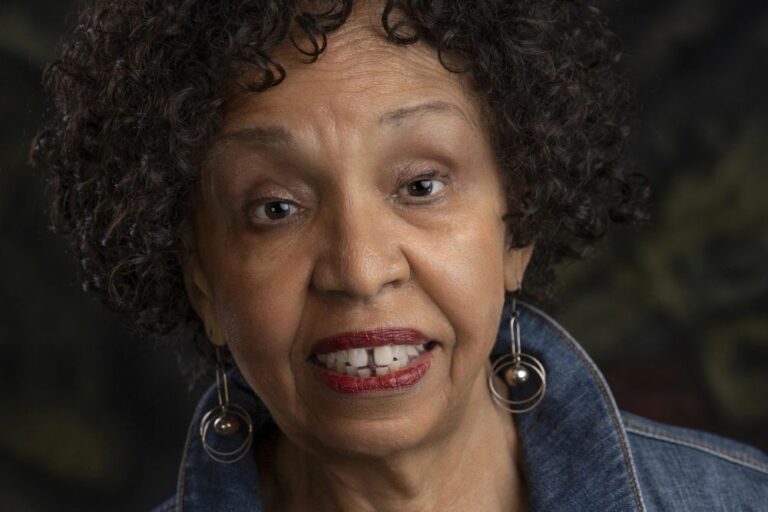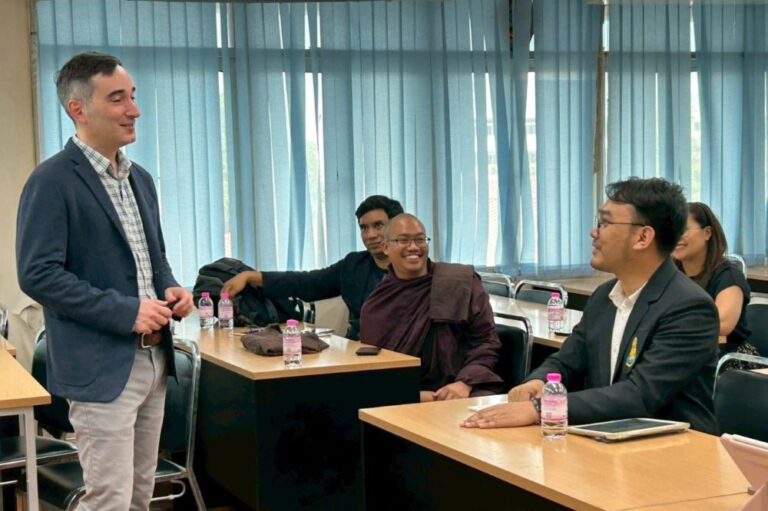
After practicing as an interdisciplinary environmental scholar and teacher for 10 years, Bethany Laursen switched fields to study theories of interdisciplinarity itself, which led her to Michigan State University where she is pursuing both an M.A. in Philosophy and a Ph.D. in Community Sustainability.
“At MSU, I have the freedom to sit in two colleges and have committees that work across disciplines,” said Laursen, a first-year doctoral student. “There are so many different options for me that I can continue to explore. That, hands down, shows I picked the right place.”
Laursen, who received a B.S. in Biological Sciences from Biola University in La Mirada, Calif., and an M.S. in Environment Resources and Forestry from the University of Wisconsin-Madison, chose to come to MSU for its land grant mission.
She said she wanted to study at a university that was “interested in doing work that would pretty immediately benefit people.”
“If you’re looking for humble and brilliant people who are doing amazing and excellent work, and who are really committed to a growth mindset, that’s what you’ll find at MSU,” Laursen said.
Her studies at Michigan State University allow her to consider both how people ought to reason and how they actually do. She is particularly interested in tools that enhance interdisciplinary sense making, an emerging field that blends theories of knowing with theories of thinking.
If you’re looking for humble and brilliant people who are doing amazing and excellent work, and who are really committed to a growth mindset, that’s what you’ll find at MSU.
The goal of her dissertation is to evaluate and explain which kinds of sense-making tools are most effective in which interdisciplinary situations. Sense-making tools include concept mapping software, dialogue processes, asynchronous survey iterations, and visualization techniques, among others.
Throughout her studies and career, Laursen says she got into the habit of asking really big questions; questions about human existence and why we’re here. But her heart’s work is natural resources management.
She studies the factors that contribute to community sustainability, including the deliberative and decision-making practices that allow those with multiple social and disciplinary viewpoints to come together to solve “wicked problems” such as climate change and racism.
“The nexus between philosophy and complex environmental issues is how do we create shared understanding,” Laursen said. “That’s not new for this philosophy department; that’s why I looked here. They pride themselves on being an engaged philosophy department. Many are doing social justice work; and some are doing those things in combination with environmental philosophy.”
Currently, Laursen is working with Professors of Philosophy Michael O’Rourke, director of the Toolbox Dialogue Project, and Paul Thompson, WK Kellogg Chair in Agricultural Food and Community Ethics, to break down the perceived and sometimes real barrier between lay folks and the “ivory tower” to be more transparent and show people how the process of science actually works.
Laursen’s first public philosophy project, “Making Sense of Sense Making,” consists of a weekly blog that shows what she’s learning about sense making, using a 3D ball, and invites readers to share what they know about it, too.


